“Do not be afraid; just have faith.” Where in your life is Jesus speaking that to you? With this freedom from fear, let’s take a look at today’s readings. The main theme today is feeling a parent’s heartbreak over their child. Regardless of where you personally stand in that scenario, parent or child, these stories are relevant to us all. We have the opportunity to open our hearts and see our lives reflected in these stories. But before we continue, I think it is important to address why we might put ourselves in them. In the book of Revelations, we hear that “the Testimony of Jesus is the Spirit of prophecy” (Rev 19:10). What does that mean for you and me? In short, this testimony of what Jesus did in their lives breathes prophetic truth into our lives, into my life. In fact, that is why our Scriptures are, “alive and active” (Hebrews 4:12) as the Holy Spirit connects our lives to the story of salvation, God stirs faith in our hearts that He can do in my life what He did then. I encourage you to read on with the simple truth that Jesus loved these people, healed these people, and this is their testimony. He did it for them, so He can do it for you and me.
The First Reading is the end of a tragic story in the later years of David. We know this because of two main reasons: his son is old enough to have started a revolt against him, and his army has asked him not to fight. This part of the story has always brought me to tears. Every time that I read, “He said as he wept, “My son Absalom! My son, my son Absalom! If only I had died instead of you, Absalom, my son, my son!” I hear the heart cry of my heavenly Father over me for the times I chose fear, sin, and rebellion.
The Gospel opens with a man begging Jesus to heal his daughter and shortly after, we hear that his daughter is not just sick but dead. This makes healing problematic, it’s one thing to heal disease, but another to bring someone back from the dead. But how does Jesus respond, “Do not be afraid; just have faith.” A woman who had suffered for twelve years with hemorrhages came onto the scene. But she should not have. Her culture, and in fact her religion, forbid her from being near or making contact with healthy people since she was bleeding and that made her unclean, it made her isolated. Yet she had the courage to say, “if I but touch his clothes, I shall be cured.” She had that faith even after twelve years of isolation and suffering. She wasn’t just cured and remained hidden from Jesus, she was recognized and known. She was publicly brought back into the community and called ‘daughter’ by God.
But do not worry, Jesus did not say, ‘I used my one miracle for today, that’s all you people get.’ He traveled on to Jairus’s house, the man whose daughter had just died. We get to see a stark contrast between the woman who was named daughter and the family that ridicules Jesus. But He did not give up but rather sent them away. They lost their chance to witness the girl being brought back to life. It makes me wonder, how many times have I been filled with doubt and was not allowed to witness a miracle happen in my life.
I want to leave you with one last thought on these readings: God shows that He knows and walks with us in our pain and He wants to bless us. He wants to reaffirm that we are His children, even when we rebel, even when we are the outcast. May Jesus bless you!
Featured Image Credit: pelau, https://www.cathopic.com/photo/4472-solo-tocando-manto-sere-sanada
 Arthur Richardson is married to his wonderful wife, Gabby Richardson. They will be married for two years this January! Most of his work experience is in ministry. He was a retreat missionary in Wisconsin for two years and a youth minister for three years. He is now the Web Project Manager here at Diocesan, and loves it!
Arthur Richardson is married to his wonderful wife, Gabby Richardson. They will be married for two years this January! Most of his work experience is in ministry. He was a retreat missionary in Wisconsin for two years and a youth minister for three years. He is now the Web Project Manager here at Diocesan, and loves it!
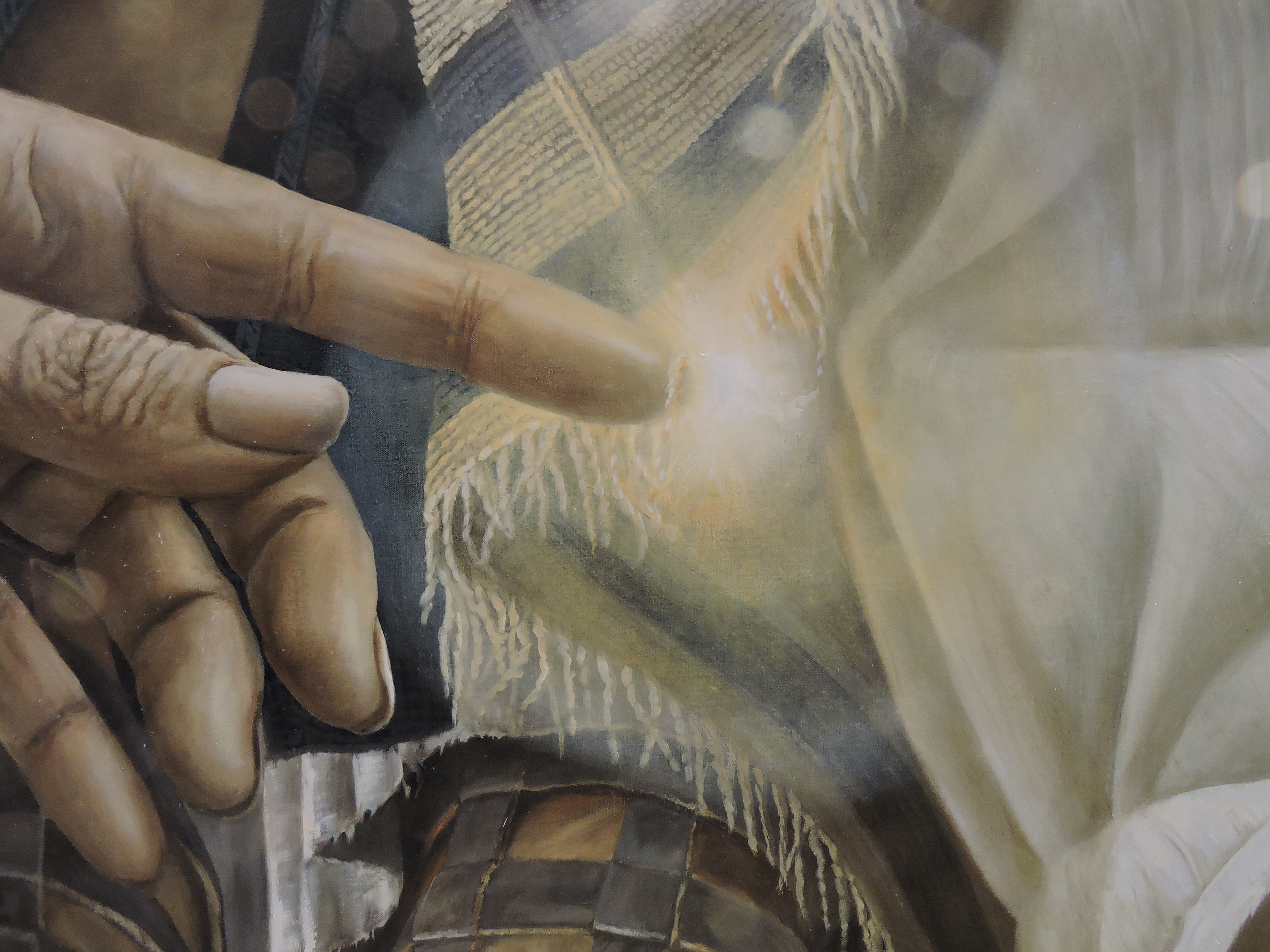

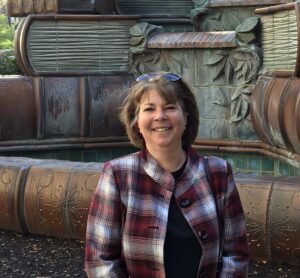 Kay Kunz is the Accounts Manager at Diocesan. She is a mother of two and grandmother of five. Living on her family’s centennial farm surrounded by nature, creatures great and small, wild and tame, Kay and her husband are in perpetual restoration mode. When she is not crunching numbers or helping churches with bookkeeping issues, you’ll more than likely find her curled up with a book and a cup of coffee. Inspired by St. Brigid of Kildare, not just because she is the patron saint of chicken farmers and turning water into beer, but her simple pastoral life of finding peace in nature.
Kay Kunz is the Accounts Manager at Diocesan. She is a mother of two and grandmother of five. Living on her family’s centennial farm surrounded by nature, creatures great and small, wild and tame, Kay and her husband are in perpetual restoration mode. When she is not crunching numbers or helping churches with bookkeeping issues, you’ll more than likely find her curled up with a book and a cup of coffee. Inspired by St. Brigid of Kildare, not just because she is the patron saint of chicken farmers and turning water into beer, but her simple pastoral life of finding peace in nature.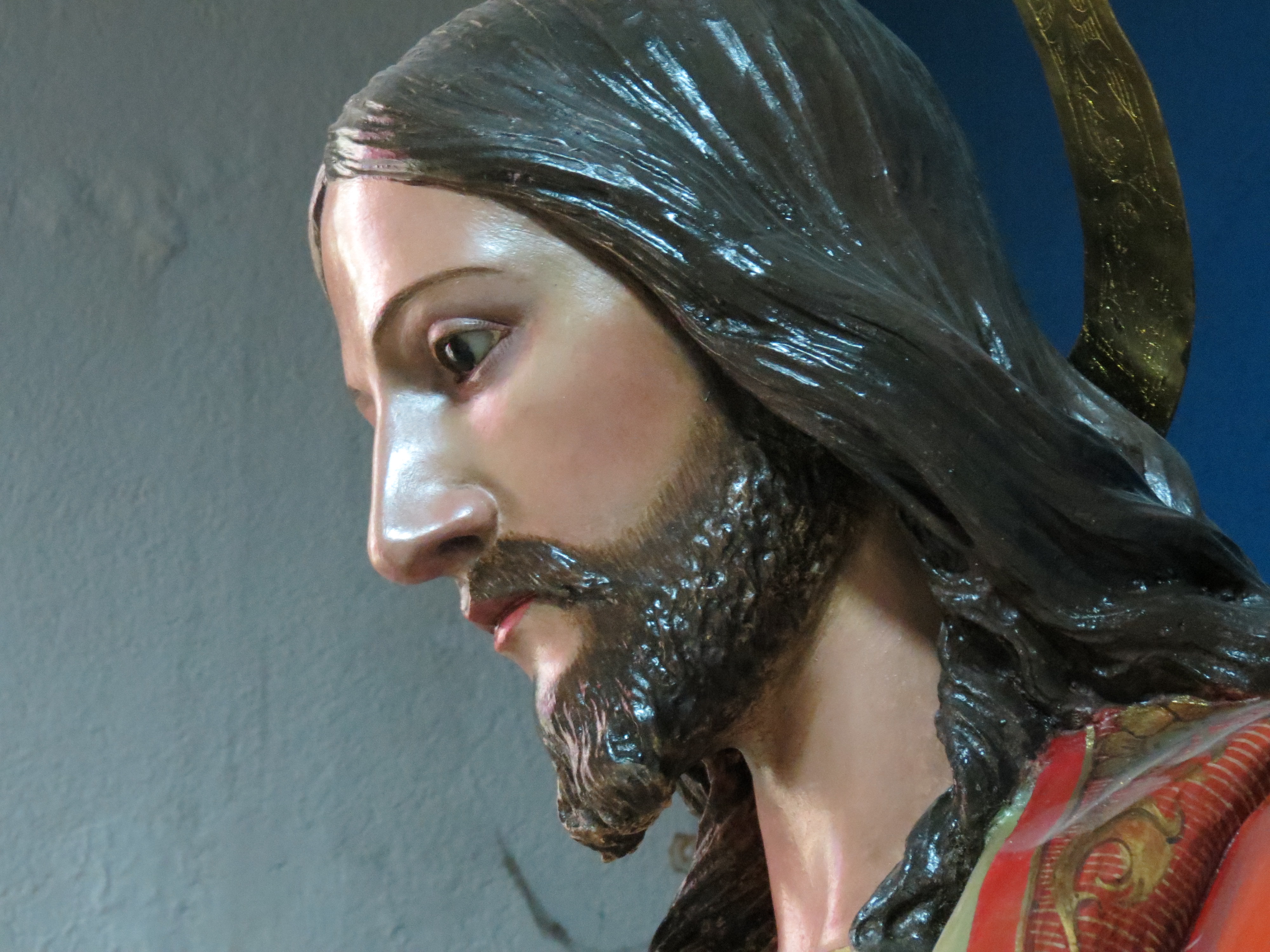
 Kathryn James Hermes, FSP, is the author of the newly released title
Kathryn James Hermes, FSP, is the author of the newly released title
 Emily Jaminet is a Catholic author, speaker, radio personality, wife, and mother of seven children. She earned a bachelor’s degree in mental health and human services from the Franciscan University of Steubenville. She is the co-founder of
Emily Jaminet is a Catholic author, speaker, radio personality, wife, and mother of seven children. She earned a bachelor’s degree in mental health and human services from the Franciscan University of Steubenville. She is the co-founder of 


 Leslie Sholly is a Catholic, Southern wife and mother of five, living in her hometown, Knoxville, Tennessee. She graduated from Georgetown University with an English major and Theology minor. She blogs at
Leslie Sholly is a Catholic, Southern wife and mother of five, living in her hometown, Knoxville, Tennessee. She graduated from Georgetown University with an English major and Theology minor. She blogs at 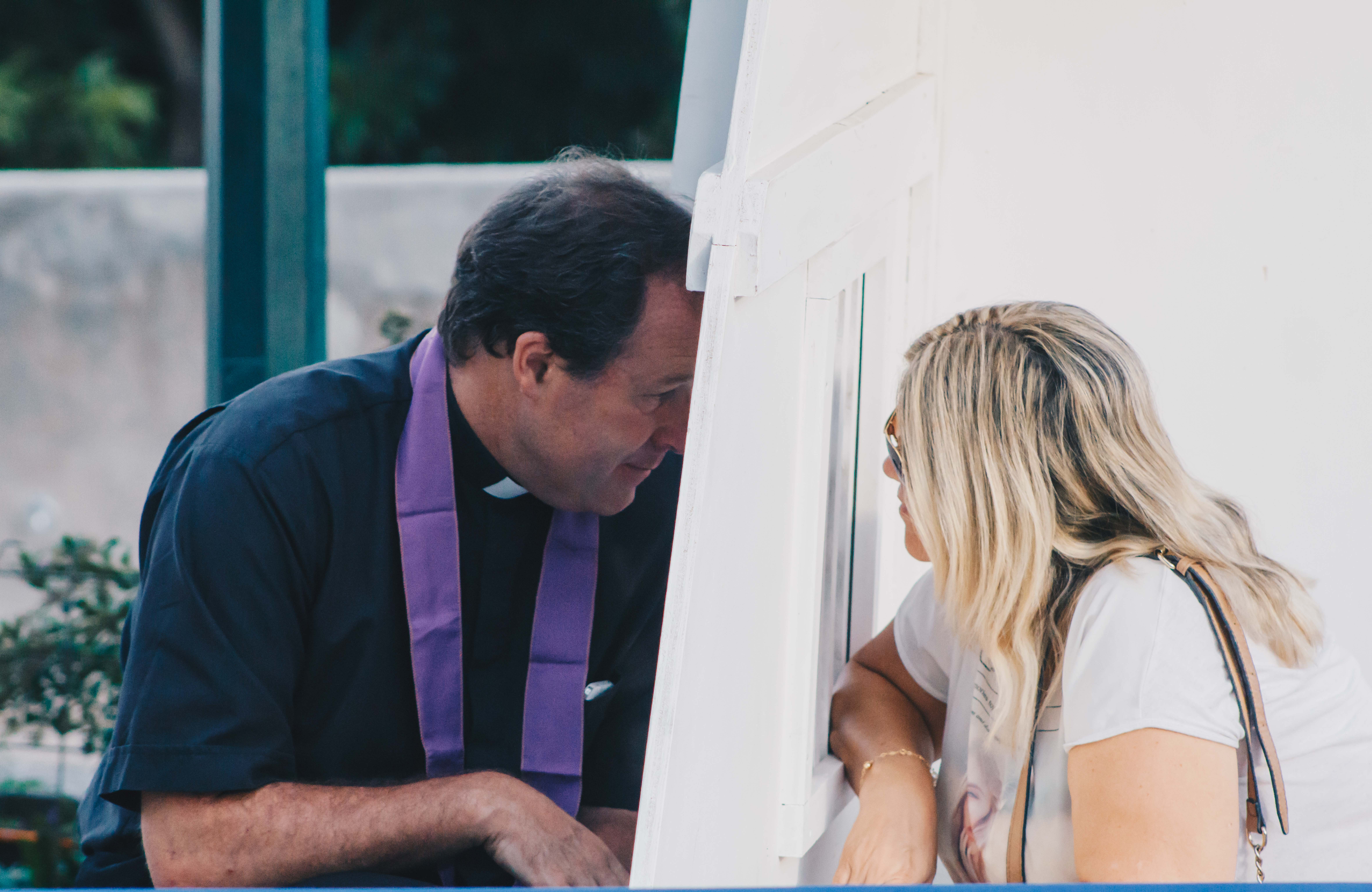
 Deacon Dan Schneider is a retired general manager of industrial distributors. He and his wife Vicki have been married for over 50 years. They are the parents of eight children and thirty grandchildren. He has a degree in Family Life Education from Spring Arbor University. He was ordained a Permanent Deacon in 2002. He has a passion for working with engaged and married couples and his main ministry has been preparing couples for marriage.
Deacon Dan Schneider is a retired general manager of industrial distributors. He and his wife Vicki have been married for over 50 years. They are the parents of eight children and thirty grandchildren. He has a degree in Family Life Education from Spring Arbor University. He was ordained a Permanent Deacon in 2002. He has a passion for working with engaged and married couples and his main ministry has been preparing couples for marriage.
 Mike Karpus is a regular guy. He grew up in Michigan’s Upper Peninsula, graduated from Michigan State University and works as an editor. He is married to a Catholic school principal, raised two daughters who became Catholic school teachers at points in their careers, and now relishes his two grandchildren, including the 3-year-old who teaches him what the colors of Father’s chasubles mean. He has served on a Catholic School board, a pastoral council and a parish stewardship committee. He currently is a lector at Mass, a Knight of Columbus, Adult Faith Formation Committee member and a board member of the local Habitat for Humanity organization. But mostly he’s a regular guy.
Mike Karpus is a regular guy. He grew up in Michigan’s Upper Peninsula, graduated from Michigan State University and works as an editor. He is married to a Catholic school principal, raised two daughters who became Catholic school teachers at points in their careers, and now relishes his two grandchildren, including the 3-year-old who teaches him what the colors of Father’s chasubles mean. He has served on a Catholic School board, a pastoral council and a parish stewardship committee. He currently is a lector at Mass, a Knight of Columbus, Adult Faith Formation Committee member and a board member of the local Habitat for Humanity organization. But mostly he’s a regular guy.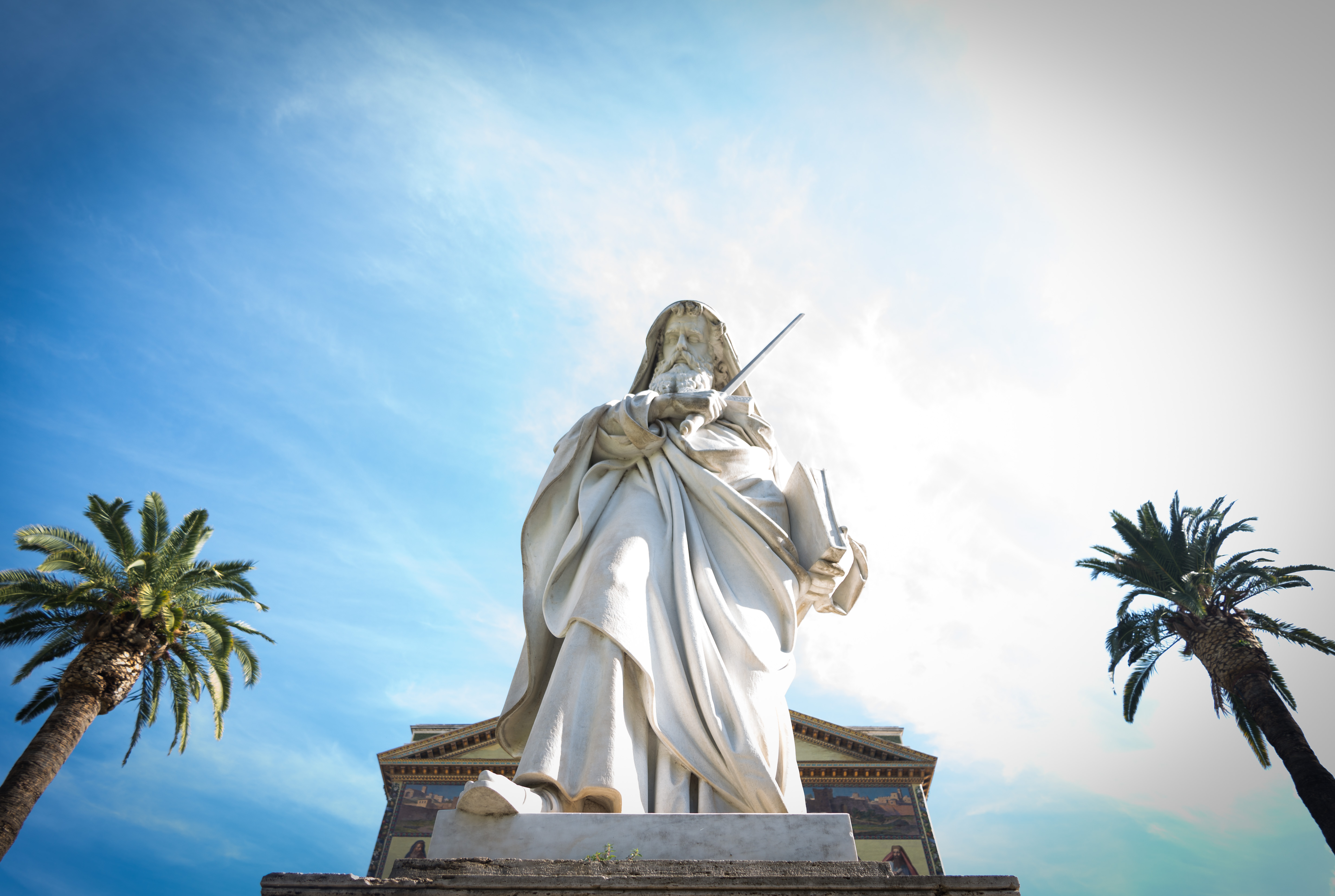
 Kathryn Mulderink, MA, is married to Robert, Station Manager for Holy Family Radio. Together they have seven children (including Father Rob), and four grandchildren. She is President of the local community of Secular Discalced Carmelites and has published five books and many articles. Over the last 30 years, she has worked as a teacher, headmistress, catechist, Pastoral Associate, and DRE, and as a writer and voice talent for Catholic Radio. Currently, she serves the Church by writing and speaking, and by collaborating with various parishes and to lead others to encounter Christ and engage their faith. Her website is
Kathryn Mulderink, MA, is married to Robert, Station Manager for Holy Family Radio. Together they have seven children (including Father Rob), and four grandchildren. She is President of the local community of Secular Discalced Carmelites and has published five books and many articles. Over the last 30 years, she has worked as a teacher, headmistress, catechist, Pastoral Associate, and DRE, and as a writer and voice talent for Catholic Radio. Currently, she serves the Church by writing and speaking, and by collaborating with various parishes and to lead others to encounter Christ and engage their faith. Her website is 
 David Dashiell is a freelance writer, editor, and proofreader based in the Pittsburgh, Pennsylvania area. His writing has been featured in Crisis Magazine and The Imaginative Conservative, and his editing is done for a variety of publishers, such as Sophia Institute and Scepter. He can be reached at
David Dashiell is a freelance writer, editor, and proofreader based in the Pittsburgh, Pennsylvania area. His writing has been featured in Crisis Magazine and The Imaginative Conservative, and his editing is done for a variety of publishers, such as Sophia Institute and Scepter. He can be reached at 